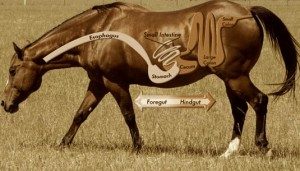
In either case if significant improvement is not seen in 7 to 14 days the horse should be reevaluated for other causes of irritation or infection. Diseases of the digestive system were by far the most common cause of death in older horses summarized Crandell.
With better nutrition and care the average lifespan of horses.
Signs of a horse dying of old age. But a prolonged lack of interest in food especially in an older horse may indicate organ shutdown as the end of life draws nearer. One of the signs a horse is dying can be that it wants to stand up but cannot do so. Signs a Horse May be Dying.
First and foremost the signs your horse will show that indicate that they are nearing their time to pass on will depend on what the reasoning is for their unwellness. For example a horse that has been struggling with colic may stop eating. You can often identify an aging horse by the following signs.
Diminished eyesight Drooping fetlocks Droopy lips Grey hair Lameness Loss of muscle mass Prominent withers Rough coat. Previous studies have suggested that one of the most common reasons that horse owners choose to have their geriatric horses which are those over 15 years of age euthanized is due to old age. A horse that is ready to die will often stop eating or lay down for longer and longer periods.
You may also see a change in the herd dynamics as one horse approaches death. I knew my donkey Lady was ready to go when I saw my mule Tess starting to spend more time away from her. Signs of Aging Not all horses age at the same rate.
Genetics and the care theyve received throughout their lives may play a role. Here are signs your horse is in its senior years. Grey hair around the eyes and muzzle.
Looser coarser skin tone Choppier gaits caused by muscle loses and arthritic joints Slower healing. The most common cause of death in aged horses was diseases of the digestive system with this diagnosis being made in almost 50 of horses. You might just see the horse move around up down If you just let the horse go freely and move about how the horse wants during the period of time that it is experiencing that kind of pain The animal could twist its stomach in such a tight manner that it would cause that horse to kill its-self like that.
The average lifespan of a horse is between 25 to 30 years although it varies between breeds. Its not uncommon for horses to live beyond 40 years of age and the oldest horse ever Old Billy lived to the age of 62. With better nutrition and care the average lifespan of horses.
In the days before death a series of physiological changes will occur. Their pulmonary system will start to degrade and the will become congested leading to a tell-tale death rattle. Diseases of the digestive system were by far the most common cause of death in older horses summarized Crandell.
Specifically 100 of the horses 42 succumbed to gastrointestinal disease including impactions ruptures displacements and strangulations. I am afraid the symptoms you list are very general for a horse dying and are not specific enough to be diagnostic. As you have found some healthy horses may be jaundiced but I cannot rule out liver disease for more see Equine Diseases Colic and GI Diseases Mouth Esophagus and Liver Icterus Jaundice in Horses.
The horse may however develop more serious signs of ageing and this can range from loss of appetite and difficulty eating to laminitis arthritis Cushings disease cataracts and weight loss. It is probably more correct to label a horse old when it shows three or four signs of old age rather than when it reaches a certain age. Signs of Old Age in a Horse Signs of.
If you dont know your horses date of birth one way tell its age is by its teeth. Telling a horses age by looking at its teeth is not exact but it will tell you the approximate age. Horses teeth erupt through the surface of the gum almost all its life until the tooth itself is.
As dying gets even closer those who will pass away due to old age may experience a shift in their breathing pattern no appetite and no desire to drink poor blood circulation and increased agitation. Functional age takes into account of the horses use. For example a 10 year old Thoroughbred is old for racing but young for Grand Price dressage competition.
According to age a horse is considered senior when it reaches 15 years of age. Due to advancement in veterinary care now horses live up to 25-30 years of age and some may reach age 40. Removing the horse from the barn is the best treatment though signs may not disappear right away.
If this is not possible treatment with bronchodilators and anti-inflammatory medication is helpful. In either case if significant improvement is not seen in 7 to 14 days the horse should be reevaluated for other causes of irritation or infection.